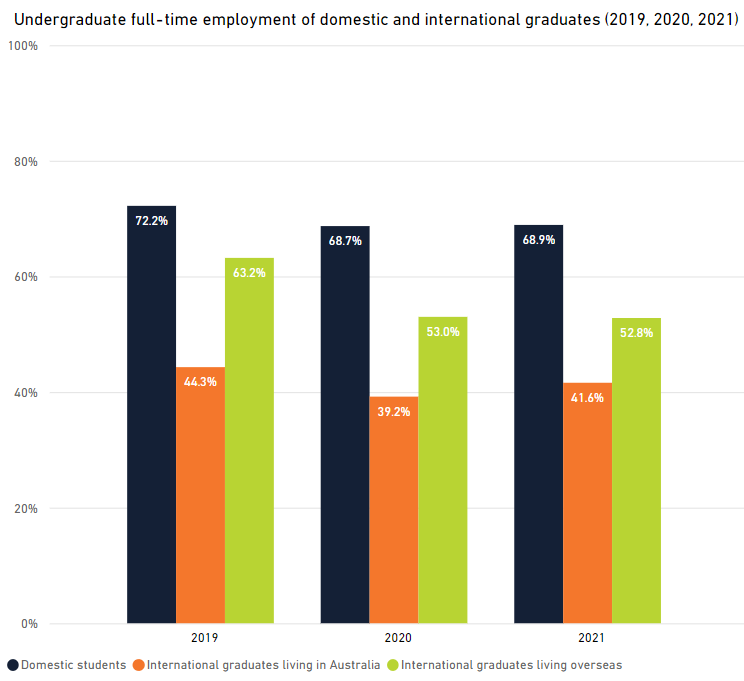In an increasingly globalized world, pursuing higher education abroad has become a powerful tool for career advancement. Studying in a foreign country not only provides academic knowledge but also exposes students to diverse cultures, international networks, and career opportunities that can significantly impact their professional growth. As we step into 2025, the benefits of studying abroad are more evident than ever. This guide explores how international education can boost your career prospects and set you apart in a competitive job market.
1. Expanding Global Career Opportunities

One of the biggest advantages of studying abroad is access to a broader job market. Employers are increasingly looking for candidates with international exposure, as it indicates adaptability, cross-cultural communication skills, and global awareness.
- Many multinational companies prefer hiring graduates who have studied in different countries and understand global business dynamics.
- Some countries, like Canada, Australia, and Germany, offer post-study work visas, allowing graduates to gain valuable work experience after completing their degree.
- Networking with professors, alumni, and industry professionals abroad can lead to job opportunities that might not be available in your home country.
🔗International Job Portals for Graduates
2. Developing a Global Mindset and Cross-Cultural Skills
In 2025, soft skills like adaptability, cultural intelligence, and global communication are just as important as technical expertise.
- Studying abroad exposes students to different cultural perspectives, making them more open-minded and adaptable.
- Multilingual skills gained while studying in a foreign country can give an added advantage in global businesses.
- Understanding diverse work ethics and collaboration styles can help graduates stand out in multinational organizations.
🔗 Harvard Business Review on Cross-Cultural Competencies
3. Gaining a Competitive Edge in the Job Market
Having an international degree adds immense value to a resume. It shows employers that a candidate is independent, resilient, and willing to step out of their comfort zone.
- Employers recognize the challenges of studying abroad, such as adjusting to a new culture and educational system, and view it as a sign of perseverance.
- A degree from a prestigious foreign university can give candidates an edge in competitive industries like finance, technology, and healthcare.
- Studying in a country with a strong economy increases chances of securing high-paying jobs post-graduation.
🔗 Top Global University Rankings
4. Internship and Work Experience Abroad

Many universities abroad provide internship opportunities as part of the curriculum, allowing students to gain practical experience while studying.
- Interning at a foreign company helps students understand international work cultures and industry expectations.
- Countries like the U.S., U.K., and Germany have strong internship programs that help students transition into full-time jobs.
- Having international work experience on a resume increases employability and salary prospects.
🔗 Global Internship Programs for Students
5. Building a Strong Professional Network

Networking is crucial for career success, and studying abroad provides students with a wealth of opportunities to build connections.
- Universities host networking events where students can meet recruiters, industry experts, and successful alumni.
- Joining student organizations, business clubs, and conferences can lead to mentorship and job referrals.
- Relationships built during study abroad experiences can turn into long-term career opportunities.
🔗 LinkedIn Guide to Building an International Network
6. Personal Growth and Increased Confidence
Living and studying in a foreign country fosters independence and problem-solving skills that are highly valued in any career.
- Overcoming cultural barriers and adjusting to a new environment helps build confidence and self-reliance.
- Exposure to different perspectives enhances critical thinking and decision-making abilities.
- The experience of living abroad often leads to a broader worldview, which is beneficial in leadership and management roles.
🔗 TED Talk on Personal Growth Through Studying Abroad
7. Opportunities for Higher Earnings

Data consistently shows that graduates with international degrees tend to earn higher salaries than those with domestic degrees.
- A study from the World Economic Forum found that professionals with international education backgrounds earn 15-25% more than their peers.
- Fields like STEM, business, and healthcare offer lucrative career paths for graduates from top-ranked international universities.
- Working in a high-income country allows students to repay education loans faster and secure long-term financial stability.
🔗 Research on Salary Benefits of Studying Abroad
Conclusion
Studying abroad in 2025 is more than just an academic journey—it’s an investment in future career success. The exposure to new cultures, access to global job markets, and development of essential soft skills make international education one of the best career-building strategies. Whether you aim for a high-paying job, an international career, or personal growth, studying abroad can open doors that wouldn’t be accessible otherwise. If you’re considering taking this step, start planning today and explore scholarship opportunities, university rankings, and visa requirements to make your dream a reality.



